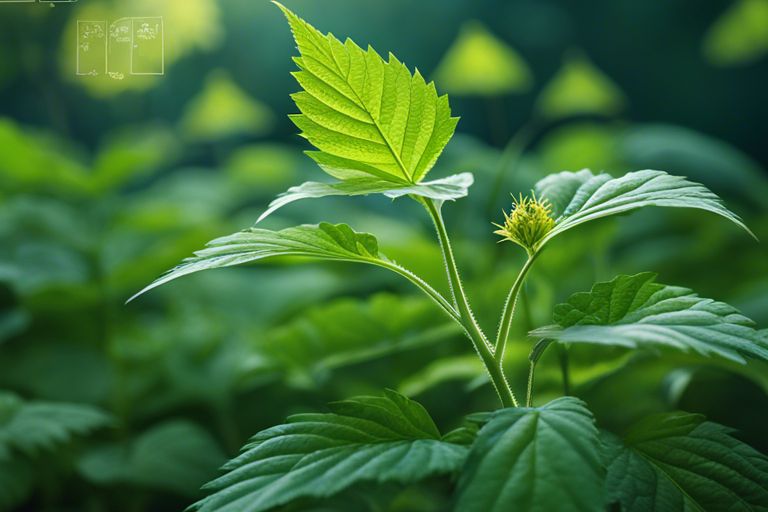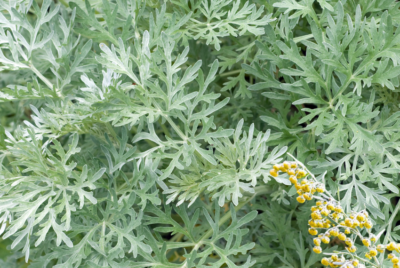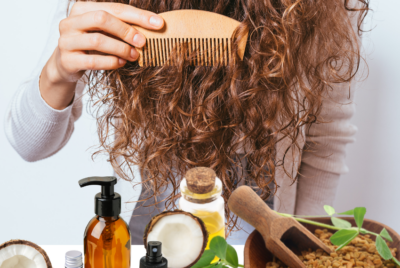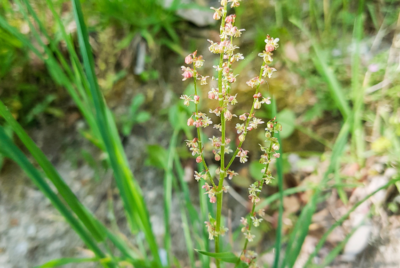The Healing Powers Of Nettle – Stinging Nettle Seeds
You may have brushed past nettles several times in your life, only to feel the sharp sting left behind by this seemingly pesky plant. However, did you know that beneath its prickly exterior lies a plethora of healing powers waiting to be harnessed? In this comprehensive guide, we will probe into the various health benefits of nettles and how you can incorporate this nutrient-packed plant into your daily routine. From soothing inflammation to promoting healthy skin and hair, nettles truly are a gem in the world of natural remedies.
Key Takeaways:
- Nettle is a powerful healing herb that has been used for centuries as a natural remedy for various ailments.
- It is rich in vitamins and minerals, including vitamin A, C, K, calcium, iron, and magnesium, making it a nutritious addition to your diet.
- Nettle can help alleviate allergies due to its anti-inflammatory properties, making it a great natural alternative to over-the-counter medications.
- It is also beneficial for skin health, as it can help reduce inflammation, eczema, and acne when applied topically or consumed internally.
- Nettle tea is a popular way to enjoy its benefits, as it can help with detoxification, digestion, and overall well-being.
Types of Nettle Preparations
One way to harness the healing powers of nettle is through various preparations that make the most of its benefits. From fresh nettle to extracts and teas, each form offers unique advantages for your health and wellness. Knowing the differences between these preparations can help you choose the best option for your needs.
| Fresh Nettle | Benefits and Uses |
| Nettle Extracts and Teas | What You Need to Know |
Fresh Nettle: Benefits and Uses
Any time you use fresh nettle, you are getting the maximum potency of this powerful plant. Whether you incorporate it into your cooking or brew it into a tea, fresh nettle offers a range of benefits. Rich in vitamins, minerals, and antioxidants, fresh nettle can help with inflammation, allergies, and overall health. Many people also enjoy making nourishing soups or smoothies with fresh nettle leaves.
Nettle Extracts and Teas: What You Need to Know
With nettle extracts and teas, you can enjoy the benefits of nettle in a convenient and concentrated form. These preparations are often used for specific health concerns like seasonal allergies, joint pain, or hair loss. Nettle teas are soothing and can be a great addition to your daily wellness routine. Need to be mindful of the dosage and quality of the product when using nettle extracts to ensure safety and effectiveness.
Step-by-Step to Preparing Nettle Remedies
Obviously, harnessing the healing powers of nettle can provide a plethora of benefits for your health and well-being. Knowing how to properly prepare nettle remedies is vital to maximize its potential. Below is a comprehensive guide on how to prepare nettle remedies in a few simple steps.
| Step 1: Harvesting | Step 2: Preparation |
| Harvest fresh nettle leaves with gloves to avoid stings. Choose younger leaves for optimal flavor and potency. | Rinse the nettle leaves thoroughly to remove any dirt or debris. Pat them dry with paper towels. |
| Step 3: Processing | Step 4: Storage |
| Use the nettle leaves to make tea, tinctures, or other remedies following specific recipes. Be creative and experiment with different preparations. | Store your nettle remedies in airtight containers away from direct sunlight and moisture to preserve their effectiveness. |
Tips for Harvesting and Storing Nettle
Storing: When storing nettle leaves, make sure they are completely dry to prevent mold and spoilage. Store in airtight containers away from light and moisture.
Harvesting: Choose a location away from pollutants and pesticides to ensure the purity of your nettle leaves. Wear protective gloves while harvesting to avoid stings. Remember to thank the plant for its healing properties.
- Keywords: Nettle, Harvesting, Storing, Preparing, Remedies, Health
How to Make Your Own Nettle Tea and Tinctures
Make your own nettle tea by steeping dried nettle leaves in hot water for 5-10 minutes. Add honey or lemon for flavor. For tinctures, soak nettle leaves in alcohol for a few weeks, then strain and store the liquid in a dark glass bottle.
After preparing your nettle tea or tinctures, enjoy the soothing and healing benefits they provide. Experiment with different recipes and variations to find the perfect blend for your needs.
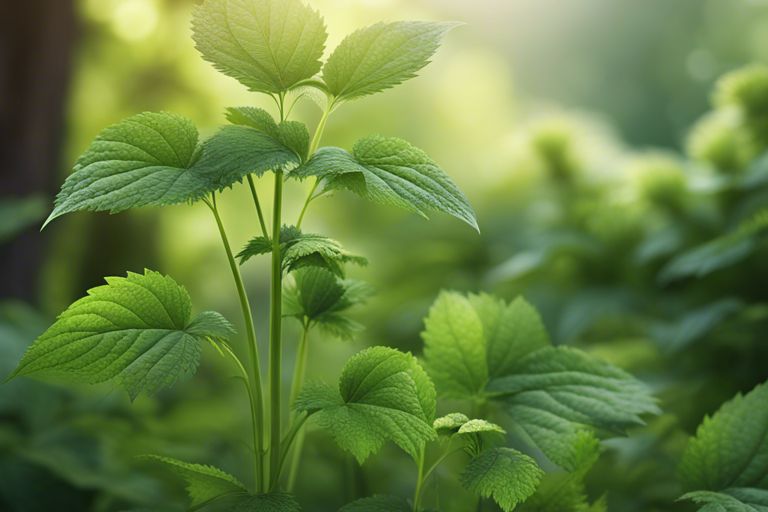
Factors to Consider When Using Nettle
Despite its numerous health benefits, it is important to be mindful of certain factors when using nettle. Here are some key points to keep in mind:
- Identifying the right type of nettle for your specific needs
- Understanding the appropriate dosages
- Possible interactions with medications or supplements
Any concerns or questions regarding the use of nettle should be discussed with a healthcare professional.
Identifying the Right Nettle for Your Needs
When considering the use of nettle, it is imperative to identify the right type for your specific needs. There are various species of nettle, with each offering unique benefits. Stinging nettle is commonly used for its anti-inflammatory properties, while white dead nettle is known for its soothing effects on the respiratory system.
It is important to do thorough research or consult with an herbalist to determine which type of nettle is best suited for your health goals and concerns.
Understanding Dosages and Possible Interactions
One key aspect of using nettle effectively is understanding the appropriate dosages and being aware of possible interactions with medications or other supplements. It is recommended to start with a low dose and gradually increase as needed. Nettle may interact with blood thinners or medications for diabetes, so it is crucial to seek guidance from a healthcare provider.
Right dosages and careful consideration of potential interactions can help you harness the healing powers of nettle safely and effectively.

The Pros and Cons of Nettle Therapy
To truly understand the benefits and drawbacks of nettle therapy, it’s important to consider both sides of the coin. Below is a breakdown of the Pros and Cons of incorporating nettle into your healing regimen:
| Pros | Cons |
| Rich in nutrients such as vitamins A, C, and K | Possible allergic reactions in some individuals |
| Anti-inflammatory properties can help with arthritis and joint pain | May cause skin irritation if not handled properly |
| Supports healthy hair and skin | Potential interference with certain medications |
| May help alleviate allergy symptoms | Can interact with blood thinners |
| Can aid in detoxification and cleansing the body | Not recommended for pregnant women |
Weighing the Benefits: Is Nettle Right for You?
Any decision regarding your health should be carefully considered. If you are looking for a natural way to boost your immune system, reduce inflammation, or improve your overall health, nettle may be a great option for you. Consult with a healthcare provider to see if nettle therapy aligns with your specific health goals and concerns. Recall, individual results may vary.
Before integrating nettle into your wellness routine, it’s vital to research and understand its benefits and potential risks. By being well-informed, you can make empowered choices about your health and well-being. Start by incorporating small amounts of nettle and monitor how your body responds. As with any new therapy, consistency and patience are key to experiencing the full benefits.
Possible Drawbacks and How to Mitigate Them
Benefits of nettle therapy can be significant, but it’s vital to be aware of potential drawbacks and how to navigate them. If you experience any adverse effects such as skin reactions or interactions with medications, stop using nettle immediately and seek medical advice. To minimize risks, always source high-quality nettle products from reputable suppliers and follow recommended dosages. Like any natural remedy, moderation and mindfulness are crucial for a safe and positive experience.
Benefits of Nettle Tea During Pregnancy
Nettle tea, made from the leaves of the stinging nettle plant (Urtica dioica), is a nutritious herbal tea that has been traditionally used to support overall health, including during pregnancy. Here are some key benefits of nettle tea for pregnant women:
-
Rich in Nutrients:
- Vitamins and Minerals: Nettle leaves are packed with vitamins A, C, K, and several B vitamins, as well as minerals like iron, calcium, magnesium, and potassium. These nutrients are essential for both maternal health and fetal development.
-
Supports Hemoglobin Production:
- Iron Content: Nettle tea is high in iron, which is crucial for preventing anemia during pregnancy. Adequate iron levels help maintain healthy hemoglobin levels, ensuring that oxygen is effectively transported to both mother and baby.
-
Promotes Healthy Digestion:
- Digestive Aid: Nettle tea can help alleviate common digestive issues during pregnancy, such as constipation and bloating, due to its mild laxative effect and ability to stimulate digestion.
-
Reduces Swelling:
- Diuretic Properties: Nettle tea has natural diuretic properties that can help reduce water retention and swelling (edema), a common issue in pregnancy, especially in the later stages.
-
Boosts Immune System:
- Antioxidants: The antioxidants in nettle tea help strengthen the immune system, protecting both mother and baby from infections and illnesses.
-
Supports Kidney Health:
- Kidney Function: Nettle tea supports healthy kidney function, which is important during pregnancy as the kidneys have to work harder to filter increased blood volume and waste.
-
Strengthens Uterine Muscles:
- Uterine Health: Some herbalists believe that nettle tea can help tone and strengthen the uterine muscles, potentially aiding in a smoother labor process.
How to Use Nettle Tea During Pregnancy
-
Consult Your Healthcare Provider:
- Always consult with your healthcare provider before adding nettle tea or any herbal remedy to your routine, especially during pregnancy.
-
Moderation is Key:
- While nettle tea is beneficial, it should be consumed in moderation. A common recommendation is 1-2 cups per day.
-
Preparation:
- To make nettle tea, steep 1-2 teaspoons of dried nettle leaves in hot water for about 10-15 minutes. Strain and enjoy warm or cooled.
Precautions
- Allergies: Ensure you are not allergic to nettle. Discontinue use if you experience any allergic reactions.
- Quality: Use high-quality, organic nettle leaves to avoid contaminants and ensure maximum health benefits.
By incorporating nettle tea into your pregnancy routine, you can enjoy its numerous health benefits and support a healthy pregnancy. Always remember to consult with your healthcare provider before making any changes to your diet or health regimen.
Getting Rid Of Arthritis Pain Using the following Herbs:
a. Nettles
Nettle, a powerful herb, is increasingly recognized for its potential in alleviating arthritis pain. Rich in anti-inflammatory compounds, nettle works by inhibiting inflammatory pathways in the body, reducing swelling and discomfort in joints. Its high antioxidant content helps combat oxidative stress, which can exacerbate inflammation. Nettle can be consumed as a tea, taken in capsule form, or applied topically as a cream to provide localized relief. Additionally, it may help support overall joint health by promoting circulation and reducing stiffness. Regular use of nettle, combined with a healthy lifestyle, can contribute significantly to managing arthritis symptoms effectively.
b. Castor Oil
Castor oil is known for its therapeutic properties that can help alleviate arthritis pain. It contains ricinoleic acid, a compound with strong anti-inflammatory effects that can reduce swelling and discomfort in the joints. When applied topically, castor oil penetrates the skin, promoting increased circulation and delivering heat to the affected area, which can ease stiffness. Additionally, its moisturizing properties help soothe and hydrate the skin. For best results, it can be massaged directly onto sore joints or used as a warm compress. Incorporating castor oil into your pain management routine can provide natural relief and improve overall joint function.
c. Boswellia
Boswellia, also known as frankincense, is a potent herb renowned for its ability to alleviate arthritis pain. It contains boswellic acids, which are natural anti-inflammatories that inhibit the production of inflammatory enzymes in the body. This action helps reduce swelling, stiffness, and overall joint pain. Boswellia is also known to improve circulation and enhance the body’s ability to repair damaged tissues. By promoting joint flexibility and reducing inflammation, it provides relief for those suffering from osteoarthritis and rheumatoid arthritis. Taken in supplement form or as an extract, boswellia can be an effective addition to a comprehensive arthritis management plan.
d. Willow Bark
Willow bark has been traditionally used for centuries to relieve arthritis pain due to its natural anti-inflammatory and analgesic properties. It contains salicin, a compound that the body converts into salicylic acid, the active ingredient in aspirin. This helps reduce pain, swelling, and inflammation in joints. By inhibiting inflammatory pathways, willow bark can effectively alleviate symptoms of osteoarthritis and rheumatoid arthritis. It can be consumed as a tea, taken in capsule form, or applied as an extract for localized relief. Regular use of willow bark may enhance mobility and improve overall quality of life for those suffering from arthritis.
e. Turmeric
When considering the 5 herbs for arthritis pain relief, Turmeric is often highlighted as one of the most powerful due to its active compound, curcumin. Curcumin boasts strong anti-inflammatory properties that have been extensively studied and are backed by various clinical trials. It effectively inhibits multiple inflammatory markers and can help reduce pain and swelling in joints. Many people have reported significant improvements in their arthritis symptoms when incorporating turmeric into their diet, making it a notable choice among herbal remedies for arthritis pain relief. However, it’s important to note that individual responses may vary, and combining several herbs may provide enhanced benefits. Always consult with a healthcare provider before starting any new treatment. 🌿
FAQ
Q: What are the health benefits of nettle?
A: Nettle is known for its numerous health benefits, including reducing inflammation, purifying the blood, and promoting healthy skin and hair.
Q: How can I use nettle for medicinal purposes?
A: Nettle can be consumed as a tea, tincture, or used topically in creams and ointments to harness its healing powers.
Q: Is nettle safe to consume?
A: Yes, nettle is generally safe for most people when consumed in moderate amounts. However, you should consult with a healthcare provider before using it, especially if you are pregnant, breastfeeding, or taking medications.
Q: Can nettle help with allergies?
A: Yes, nettle is known for its anti-allergic properties and can help alleviate symptoms of seasonal allergies such as sneezing, itching, and congestion.
Q: Where can I find nettle for consumption?
A: Nettle can be found in health food stores, herbal shops, or you can even grow it in your own garden. Make sure to harvest it carefully to avoid being stung by its fine hairs.
Q: How can Nettle Tea Help for Prostate Health?
Answer:
Nettle Tea for Prostate Health
Nettle tea, derived from the leaves of the stinging nettle plant (Urtica dioica), is renowned for its various health benefits, including support for prostate health. Here are some of the key benefits of nettle tea for the prostate:
- Reduces Symptoms of Benign Prostatic Hyperplasia (BPH):
- Symptom Relief: Nettle root extract is often used to alleviate symptoms of BPH, a common condition in older men where the prostate gland enlarges, leading to urinary issues. Nettle tea can help reduce symptoms like frequent urination, nighttime urination, and incomplete bladder emptying.
- Anti-Inflammatory Properties: The anti-inflammatory properties of nettle help reduce inflammation in the prostate, which can improve urinary flow and decrease discomfort.
- Supports Hormonal Balance:
- DHT Inhibition: Nettle has been shown to inhibit the conversion of testosterone to dihydrotestosterone (DHT), a hormone linked to prostate enlargement. By reducing DHT levels, nettle tea may help manage BPH symptoms.
- Antioxidant Effects:
- Cell Protection: The antioxidants in nettle tea protect cells from oxidative stress, which can contribute to prostate issues. These antioxidants help maintain overall prostate health by reducing damage from free radicals.
- Diuretic Properties:
- Improved Urine Flow: Nettle’s natural diuretic properties can help increase urine flow and reduce residual urine volume, alleviating some of the urinary symptoms associated with an enlarged prostate.
How to Use Nettle Tea for Prostate Health
- Consult Your Healthcare Provider:
- Before starting nettle tea for prostate health, consult your healthcare provider, especially if you have any underlying health conditions or are taking medications.
- Preparation:
- Making the Tea: Steep 1-2 teaspoons of dried nettle leaves in hot water for about 10-15 minutes. Strain and drink. For best results, consume 1-2 cups daily.
- Combination with Other Herbs: Nettle tea can be combined with other herbs like saw palmetto, which is also beneficial for prostate health.
Precautions
- Allergies: Ensure you are not allergic to nettle. Discontinue use if you experience any adverse reactions.
- Interactions: Nettle may interact with certain medications, such as blood thinners and diuretics. Always consult your healthcare provider before adding nettle tea to your regimen.
Conclusion
Incorporating nettle tea into your routine can offer several benefits for prostate health, particularly in managing symptoms of BPH and supporting overall prostate function. As with any herbal remedy, it is essential to use nettle tea in consultation with your healthcare provider to ensure it is safe and appropriate for your individual health needs.
